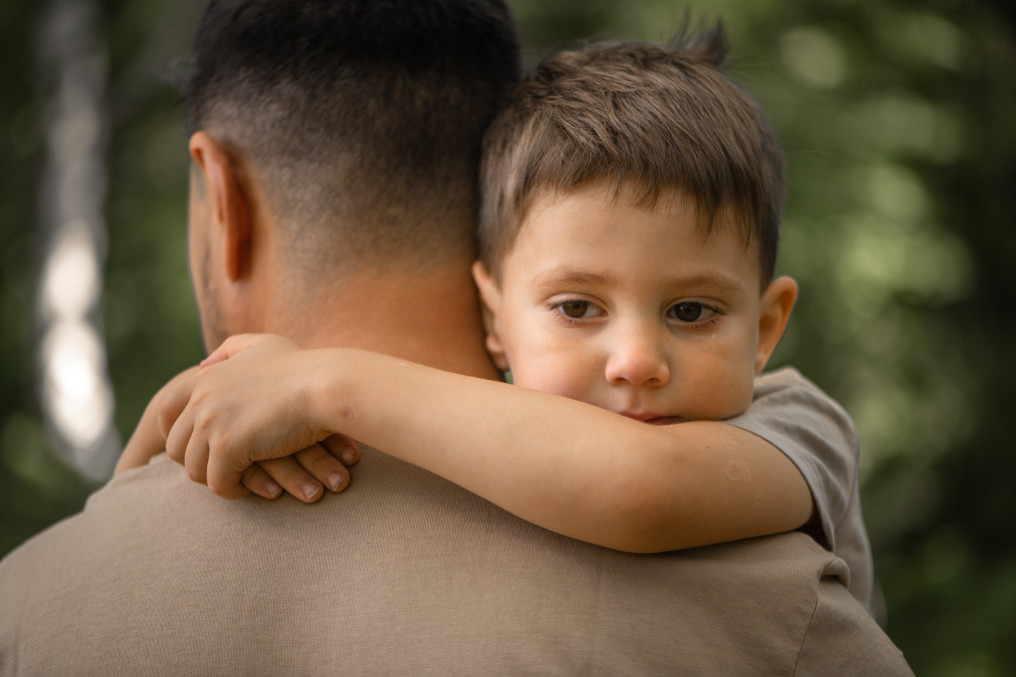How to Talk to Kids About a Cancer Diagnosis in the Family
 What does an appropriate and reassuring conversation with children about a cancer diagnosis look like?
What does an appropriate and reassuring conversation with children about a cancer diagnosis look like?
Elizabeth Farrell, a clinical social worker with the Dana-Farber Cancer Institute, says that a lot of caregivers’ first instinct may be to choose not to tell their children, hoping to protect them.
‘The worst thing that can happen is that a kid finds out about their parent’s illness from somebody else,” she said.
Farrell says parents need to be thoughtful about where and when they plan to have the conversation.
She often encourages people to choose a comfortable space such as at home, “not in a space where kids may not feel like they can react or respond in a way they want to or need to,” she said.
Type of language
Farrell says it is imperative to use the actual words of the diagnosis because kids will be bound to hear them.
“Use the word ‘cancer,’ ” she said, “be really clear — if you’re going to get chemotherapy, then it’s ‘chemotherapy,’ ‘surgery,’ et cetera.”
She also says it is important to remind the child that the best information they can receive is from the parents themselves — “Saying to kids, ‘So, if you are looking it up, please come to me with things that you are finding or things that you are worried about,’ ” she said.
How to have the conversation
Farrell suggests saying something along the lines of: You may have noticed that things are a little weird around here recently. I’ve been gone a lot, I’ve been in appointments, I’m on the phone more than I normally am and I wanted to tell you why that is.
Go ahead and tell the kids what kind of treatment it will be, she says, whether it’s surgery or chemotherapy.
Farrell says that the next most important thing after breaking the news is making sure to let the kids know how the diagnosis will impact them in terms of their daily lives — someone else may now have to take them to school, or the parent might be spending some time away from home. It’s also important to make sure the child’s life remains as normal as possible in terms of activities and schedule.
Getting emotional is OK
“It’s absolutely OK if you look a little scared or you cry,” Farrell said. “Kids need to know it’s OK to have those feelings, that this is a hard situation.”
She suggested saying something like: I’m a little scared about this too. It’s OK to be scared and we can be scared together a little bit, and it makes me sad to talk about but I know you’re going to be fine.
She says it’s important that the child does not feel like they need to take care of the parent or feel like they can’t show any emotion.
If the diagnosis is terminal cancer
If a child asks, “Are you going to die from this?,” Farrell said that the impulse is to say, “Absolutely not!” But this could breach the trust between a parent and their child.
“There’s a way to respond that does not incite panic or anxiety, but is also honest,” she said.
She said that if a child asks a parent if they will die, a parent may say: That’s not what’s happening right now. If at any point we need to be worried about that, my doctors will let me know, and we will let you know.
Excerpted from “How to Talk to Kids About a Cancer Diagnosis in the Family” from NPR. Read the full article online.







